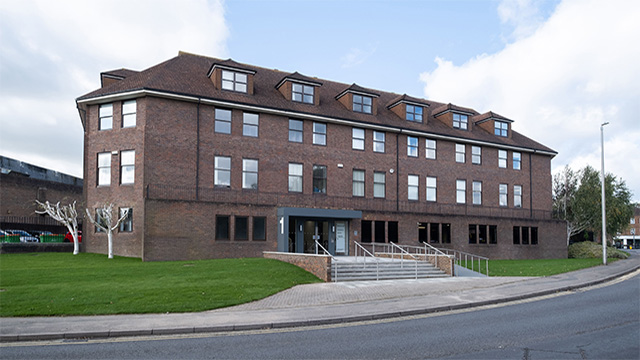Five steps to creating successful Middle East partnerships
Leading industry figures share their top tips on how to elevate business partnerships and improve the likelihood of long-term success.
While the concept of collaboration can be interpreted in many ways – from joint ventures and public-private partnerships, to agreements between landlords and asset managers – jvs appear to be the most prevalent form of collaboration in the UAE. This has recently been underscored by the AED30bn (£6bn) development agreement between Abu Dhabi’s Aldar and Dubai’s Emaar Properties, which is in the final stages of being structured.
“As a lot of developers begin to get heavy balance sheets, they are looking at ways to unlock capital, and share risk and reward – a joint venture is a really good way of doing that,” Hazel Shakur Quinn, real estate partner at law firm Bryan Cave Leighton Paisner, explained.
Leading industry figures share their top tips on how to elevate business partnerships and improve the likelihood of long-term success.
While the concept of collaboration can be interpreted in many ways – from joint ventures and public-private partnerships, to agreements between landlords and asset managers – jvs appear to be the most prevalent form of collaboration in the UAE. This has recently been underscored by the AED30bn (£6bn) development agreement between Abu Dhabi’s Aldar and Dubai’s Emaar Properties, which is in the final stages of being structured.
“As a lot of developers begin to get heavy balance sheets, they are looking at ways to unlock capital, and share risk and reward – a joint venture is a really good way of doing that,” Hazel Shakur Quinn, real estate partner at law firm Bryan Cave Leighton Paisner, explained.
According to Aqil Kazim, chief commercial officer of developer Nakheel, several British investors – which rank third in the number of investors by value in the property market in Dubai – team up with project managers on developments in Dubai.
He also noted the environment in Dubai’s culture is inherently collaborative, both domestically and internationally. “Seven emirates have united to form a country, so it is embedded in the bloodstream,” Kazim said. “Anybody who has done business in Dubai knows that collaboration is built in, from a real estate perspective.”
In a climate where collaboration is increasingly used as a means of gaining external expertise, mitigating risk and accessing fresh capital, leading industry figures shared five tips on how to elevate business partnerships and improve the likelihood of long-term success.
1. Collaborate on several levels
Sir Edward Lister, chair of Homes England, said a visibly collective effort is fundamental to building trust and confidence with funds and potential investors. “[With] some of the projects that I’ve been involved with, there has been no question about it. If somebody comes along on their own [with a pitch], you look at them, thank them very much, and that is pretty much the end of the conversation,” he said.
“If they come along and [outline] the team, the group it has combined with, the experts [it has brought on board], you start to believe they can deliver.
“At the end of the day, they have got to convince you they can do it. Unless they can, you are not going to run the risk with them. So it is about collaboration [in] the total group – from local government, through central governments, the investors, the developers and the professional teams around them.”
2. Ensure there is a cultural fit
For businesses exploring potential opportunities for new partnerships, finding a firm with similar cultural values is important. “Most joint ventures that we see that fail do not fail on business, but because the culture wasn’t right from the outset and that comes down to working together,” said Shakur Quinn.
“Things that work well are partnerships where the approach is collaborative from day one. These are focussed on growing the pie, not the slice.”
3. Figure out who should be held accountable
Lister highlighted that partnerships usually start to hit “more rocky and difficult territory” when working out who might be responsible for something going wrong. Establishing accountability and each role at an early stage is therefore vital for a partnership to succeed in the long-term.
Kazim pointed to Nakheel’s own jvs with European outfits – including a 50/50 agreement with German brokerage firm Engel & Völkers, and a partnership with Spanish chain RIU Hotels & Resorts – as “very different experiences”.
“The good thing is, [usually] nobody can have an identity crisis halfway,” he said. “From the [beginning], everybody knows what value they bring to the table.
“If there are any doubts on that, we do not plunge into the deep end from the get-go. We would do an MOU first, before going into a formal relationship; by that point the chemistry starts to form, and all the parties in the joint venture know what value they are adding.
“So if there were a problem that we had to face say, two years down the road, we would know who would need to deal with it. And if the stakes are there, everybody [will be] looking at the greater good of the venture.”
4. Form a contingency plan
Shakur Quinn likened the nature of joint ventures to marriages, in that “nobody wants to think about divorce before you’ve even started”.
But one of the common mistakes she sees is that most agreements are consequently “very rigid” when set up. By putting the right mechanisms in place at the outset to factor in all possible outcomes, such as the prospect of an early exit, partnerships stand a better chance of success.
She said: “Make sure your structures have enough flexibility so that you can react to the market. If you need to finance at a later date, [you will have thought of] all of the eventualities.
“The successful partnerships are ones where it is nobody’s fault – you just recognise things that might happen, and you talk about them at an early stage.
“As long as you have all those contractual mechanisms in place to deal with those eventualities, it is a lot easier for that partnership to evolve [and] allow your joint venture to be flexible.”
5. Know your endgame – and use different types of collaboration to achieve it
The Standard Chartered Tower in Dubai – one of the first buildings delivered after the city’s financial crisis – was underlined as an example of how indirect forms collaboration can help firms withstand structural shifts in the market.
The bank leased 60% of the building in 2011 from Multiplex, its developer, when such deals were still relatively uncommon in the city. In 2016, the building was sold to the Kuwait Investment Authority for a reported AED650m (£132.6m).
“We need more of these examples. When you see it in real estate investment, it all points to liquidity, so there’s a bigger picture to collaborating,” said Shakur Quinn. “It is about what you want to get out of the collaboration, and especially, when we talk about it in development, who the end user [is], [and whether] you will keep the asset.”
Brum together: Birmingham’s hunt for investment partners in the UAE
The West Midlands has steadily made its way up the wishlist for foreign investors in recent years. Research from the Department for International Trade last year found the region has been the only part of the UK to grow both its number of foreign investment projects and employment.
Among its cohort, Birmingham has been particularly proactive in seeking out large funds in Dubai and Abu Dhabi for prospective joint ventures.
“It might sound very simple, but just coming out to meet investors and telling them how keen we are for them to invest into the UK, and into Birmingham, has been incredibly powerful,” said Waheed Nazir, corporate director for economy at Birmingham City Council.
“Putting out the proposition and how we want to work with them has given us a great lead.”
On a UK-wide level there are evidently still hurdles to attracting investment, as uncertainty around Brexit continues. However, the case for the city looks strong while inbound investment in infrastructure remains stable: HS2 is slated to launch in the city in 2026, and it also won its bid to host the Commonwealth Games in 2022.
Birmingham’s industrial heritage is also diversifying – in addition to housing Jaguar Land Rover’s headquarters, it has also secured Jaguar’s HQ for innovation and design.
Its role as a testbed for the UK for 5G technology will also stand it in good stead, according to Nazir, particularly where it concerns modular construction, healthcare models and mobility.
While meeting with potential investors in the Middle East, Nazir said the West Midlands garnered interest from private equity, institutional and sovereign wealth alike on opportunities for collaboration.
He said: “As a public body, we are looking to put our land into joint ventures to simplify the regulation and look at a long-term secured return over a longer period of time – and we’ve had a very good response to that – but we’ve also been very surprised about some of the private equity who have actually got a more aggressive approach and is looking for a far stronger IRR return.
“Having a diverse set of product in the city has been quite important, to be able to offer different products for different people with different appetites.”
Unexpectedly, Nazir had found he has been able to bond with investors on issues that are affecting their respective cities.
“We are facing somewhat similar demographic challenges, as quite a young city with also an ageing population, and how we deal with some of those issues,” he noted.
“That has been quite an interesting dynamic [that] we did not expect. There’s been interest in how we can collaborate across the [board], not just for investment but also on how we deal with some of these challenges.”
While Birmingham is naturally Nazir’s core focus, he is also out to present the business case for investment into other key cities in the UK. “From our perspective as a UK PLC, we want investment into Manchester and Leeds. It is about rebalancing the economy,” he affirmed.
“For far too long we have focused on the London market, and while that is still is an important market, it’s about rebalancing the economy [and] looking at the regional cities, which are the economic hubs of the UK.”
To send feedback, e-mail pui-guan.man@egi.co.uk or tweet @PuiGuanM or @estatesgazette











